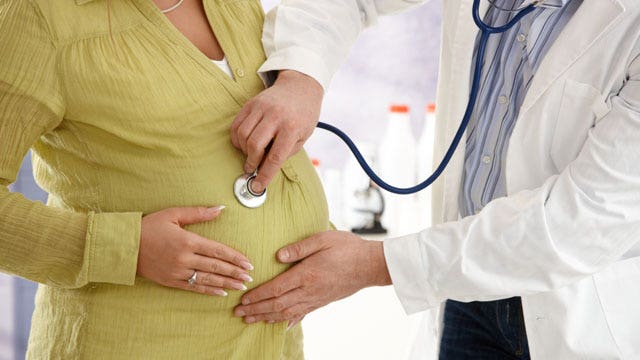School is back in session and you know what that means: Stomach bugs, colds and common viruses are starting to make their rounds.
One of those viruses is parvovirus B19 or fifth disease. While not the most common of illnesses, parvovirus or fifth disease has been affecting some of the pregnant women coming into my practice – and other patients are asking if they should be worried.
Between the months of October and December, pediatricians will tell you that there are many outbreaks of viral diseases among their young patients. And of course, when these kids come home from school, they can pass these illnesses on to parents or other adults.
Symptoms of fifth disease in children may vary greatly from one child to the next, but can include a fever, sore throat, headache, itching and a distinctive facial rash that resembles a red handprint on the cheek, commonly called a slapped-cheek rash.
The virus is typically tolerated well by adults, with the only symptoms being a low-grade temperature, fatigue and a mild rash. Many adults will show no symptoms at all, but may complain of joint pain.
With pregnant patients, however, the virus can become more complicated. About 50 percent of pregnant women are immune to parvovirus B19, but for the other 50 percent who are not – there is about a 5 percent chance the virus can be transmitted through the placenta into the unborn child. Once inside the fetus, the virus can suppress immunity in the bone marrow, thereby creating severe anemia. While the risk for complications to a fetus is small, severe anemia can cause congestive heart failure, which can lead to a buildup of fluid around the heart, lungs and abdomen – a potentially fatal condition called non-immune hydrops.
There are treatments for non-immune hydrops, and one of those is an intrauterine transfusion of blood into the fetus that reverses the anemia and helps improve the cardiac function. Techniques for this procedure are quite delicate and require special training of high-risk obstetricians.
A simple blood test can reveal whether a pregnant woman has been acutely exposed to parvovirus B19, or if she has immunity from prior exposure. Washing your hands and your children’s hands frequently and practicing good hygiene with your family all year round can decrease the chances you or your children will become infected with the virus.
I would encourage all expectant mothers to be aware of this virus – especially if they have a child in school – and talk to her obstetrician if she thinks she has been exposed.







Leave a Reply